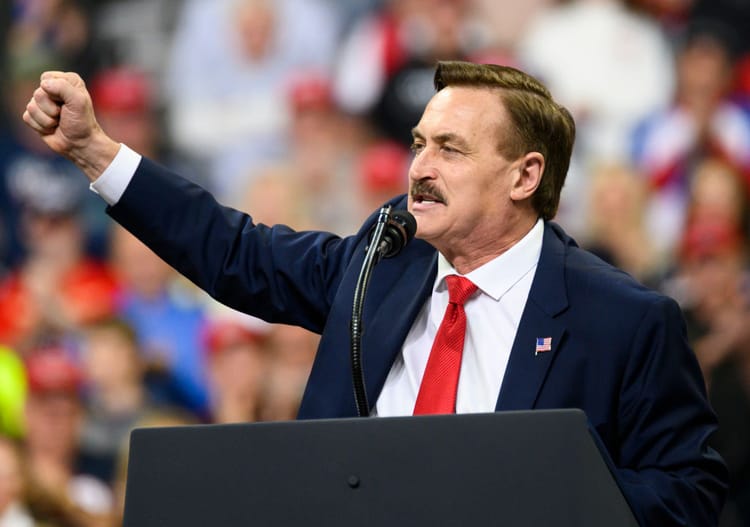Updated COVID-19 vaccines expected to be available in September, federal officials say

By Jennifer Shutt, Minnesota Reformer
WASHINGTON — The Biden administration is gearing up for a fall vaccination campaign that not only includes updated COVID-19 boosters, but the annual flu shot and the newly approved RSV vaccine.
“We’re going to be encouraging Americans to get their COVID-19 vaccine in addition to their annual flu shot, as well as the immunizations for RSV for people who are over the age of 60 as well as for infants,” one official said. Respiratory syncytial virus, known as RSV, usually causes mild, cold-like symptoms but can also be serious, the Centers for Disease Control and Prevention says.
During a roughly 24-minute call on Thursday, four officials from the CDC and the Food and Drug Administration spoke to reporters on background to discuss the plans for the fall’s vaccine campaign.
The officials declined to say how many Americans the Biden administration is targeting for updated COVID-19 shots heading into cold and flu season.
“We can’t speculate or predict where it will ultimately land. But our goal is for that number of uptake to be as high as possible,” the same official said.
The Biden administration, the official said, hopes to provide access for uninsured and underinsured people to get the booster once the updated COVID-19 vaccine is approved.
A second official said an updated COVID-19 vaccine from one pharmaceutical company shows some promise against the EG.5 variant that makes up an increasing number of new cases, though the official said there needs to be more data about the updated vaccines’ impact on the BA.2.86 variant.
“One of the manufacturers has already made it clear that when testing their vaccine against the EG.5 variant that it looks like the neutralization is robust,” the second official said. “So I think that’s a good harbinger.”
On the BA.2.86 variant, the second official said that “it’s too early to know for sure about BA.2.86 in terms of the exact data.”
“But I think we feel comfortable in saying that it’s likely that the vaccine will help protect against the severe outcomes that would occur,” the second official said. “So we’ll obviously have more data that will come in in the next few weeks. But for right now, I think we believe that the booster will be helpful against the severe outcomes that might occur.”
Once the FDA approves one or several updated COVID-19 vaccines this fall, the first official said the Advisory Committee on Immunization Practices plans to meet quickly to make its recommendations for clinicians.
“Our intention, certainly as we look into mid-September, is to have the ACIP meeting and as close as possible succession to FDA action,” the first official said, adding that CDC and FDA are “joined at the hip on this.”
The first official noted that ACIP recommendations help to “guide clinicians as to … who would best benefit from COVID-19 vaccines.”
Getting the updated COVID-19 vaccine into nursing homes and long-term-care facilities will be a priority for the Biden administration, according to the first official.
“We are focused on getting older individuals their vaccines, partly because they have been a higher proportion of hospitalizations throughout the pandemic,” the first official said.
“CDC has been working very closely with the associations and the provider groups that provide vaccinations in facilities like long-term care and assisted living,” the first official said. “We’re also focusing a lot of our outreach on both the individuals who live there, the owners and operators, and the providers who work in those facilities to make sure they know when the vaccines are coming out, how to access them, how to administer them, etc.”
Once approved, the updated mRNA COVID-19 vaccines for people aged 12 and older will be fully licensed this fall, though the vaccines for people 11 and younger will still be under the emergency use authorization, according to the second official.
The protein-based COVID-19 vaccine from Novavax will also remain under the emergency use authorization framework, according to the second official.
So some of the updated vaccines may come with a cost, unlike during the pandemic when all the COVID-19 vaccines were free.
Moderna, for example, announced earlier this year that it would increase the price of its COVID-19 vaccine from $30 to $130, leading to a bipartisan condemnation of the decision at a U.S. Senate hearing.
Testing and treatments will also remain available during the upcoming cold and flu season, the first official said.
“What we know about treatments is that they can reduce the risk of severe illness, hospitalization and death,” the first official said. “CDCs goal is to protect against respiratory diseases this fall and winter.”
COVID-19 hospitalizations and deaths have begun to increase, according to CDC data.
Between Aug. 6 and Aug. 12 the number of hospital admissions increased by nearly 22% bringing the total weekly admissions to 12,600. That’s the highest it’s been since mid-April, according to CDC data.
The number of deaths increased by slightly more than 8% during the same time frame to about 251 a week, though that still remains much lower than during the pandemic, according to CDC data.
Minnesota Reformer is part of States Newsroom, a network of news bureaus supported by grants and a coalition of donors as a 501c(3) public charity. Minnesota Reformer maintains editorial independence. Contact Editor Patrick Coolican for questions: info@minnesotareformer.com. Follow Minnesota Reformer on Facebook and Twitter.



Member discussion